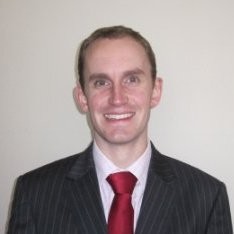Business Disability Forum in association with the Royal Bank of Scotland in Edinburgh is delighted to be able to offer new career development courses specifically designed for disabled people. The programme will be delivered by highly experienced personal development coach and Business Disability Forum Ambassador, Phil Friend and his non-disabled colleague Dave Rees, a trained expert in neuro linguistic programming.
Robert Oldham, Continuous improvement manager at Royal Bank of Scotland (pictured right) did the course and said:

Robert Oldham
“During the course I learnt that I am disabled [Multiple sclerosis (MS)]. Before then in staff surveys I would tick the no box when asked if I had a disability. After the course I ticked yes. Technically I meet the legal definition but more importantly, I acknowledged that the world as it stands isn’t geared to be inclusive; not through ill-intention but through lack of understanding. People think about and design for the majority. The course gave me the confidence to talk about myself and my health condition.
“In large businesses you get to go on many courses. Usually it’s a nice day out but it doesn’t change anything. With this development programme, you get a nice lunch but there are real action takeaways and practical tools that will help you. You learn that you’ve got an impairment and you can’t do anything about that. You can, however, do something about being in an office not getting the support you need and not getting ahead in your career. You really can do something about that. I had to write a one page summary about me which said “this is me and I have MS and this is what I need from you”. I sent it to my manager with a guide about MS from the MS society and said “ask me anything you want”. My manager responded really positively. She said that no one had ever done that before. She found it informative and said that she now realised that fatigue is one of my biggest challenges. On a bad day it’s better for me to go home early to get some rest as it meant I was more productive when I returned rather than just being present at work and unproductive.
“This one page summary is kind of like an alternative CV – without cub or scout badges you’ve earned. It says “this who I am; this is the health condition I have; this is how it affects me and this is what I need from you to be the most effective individual I can be”. When I first started it was the length of War and Peace but getting a friendly pair of eyes to review it helps you to refine it. Often you can think something is really important only for someone else to tell you that it really isn’t that important. My previous manager was my friendly pair of eyes and she gave me some great feedback.
“In 2011, just after the height of the financial crisis Lloyds (then Lloyds TSB) was restructuring and I left the organisation. It took a while to find a new job and I was very aware that setting up as a contractor wouldn’t work for me as it didn’t offer the same protection as a large organisation. I joined RBS in November 2012. I confess that I joined without telling them I had MS. On my first day I had coffee with my manager and told him. I wanted to show how committed and capable I was so didn’t share my one page summary with him but I did give him the MS Society guide. He turned out to be a terrible manager who didn’t understand MS at all and I had challenging time but I’ve stayed with RBS in a variety of roles.
“Now I’m part of health advisory team in RBS. We provide adjustments for people across the bank. When RBS said it wanted to introduce a career development programme for disabled it re-jogged my memory about the course. When you get comfy you get out of good habits. I was one of guest speakers on this course – explaining what RBS had done in the disability space. I was also one of founding members of ENABLE, the staff disability network.”
People who have been on the course at RBS describe it as ’empowering’ and ‘rewarding’ and said that it has given them confidence and broken down barriers. The course enables you to meet people who have a lot of commonality in terms of challenges even if they aren’t just like you. We’re all disabled. The key thing for me is that it helps you find your identity again and gives back confidence that you might not even know you’ve lost. After the course I was able to reground and re-focus.
The Career Development course helps you to learn that things are still possible. It gives you tools and strategies to manage your disability that allows you to be as effective as anyone else. In the last few years my fatigue levels have gotten worse and I don’t have energy for home and work life and so I have to consciously choose where I expend my energy and I’ve chosen prioritise home life. I have three children who keep me busy. Conscious decision making is one best things I’ve learnt. One of biggest challenges is that no one can tell you what your disability will mean for you in years to come. I have a degenerative neurological condition so it will get worse. I’ve lived my life not paying too much attention to that because no one knows what’s going to happen next week or next month or year. I’ve learned to ignore it in a productive way.
Find out more about the Career Development Programme here
